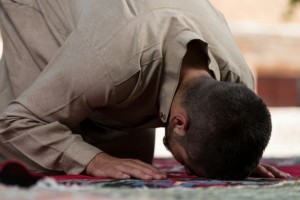
In December, almost 200 workers in a Colorado meatpacking plant were fired after being absent for three days. Cargill Meat Solutions is based in Wichita, Kansas, but it is their plant in Fort Morgan, Colorado, where the incident took place, raising a question about religious discrimination and accommodation for Muslim immigrants.
Why Did the Employees Walk Out?
According to the plant, on December 18, 11 Somali immigrants asked to go on break together to pray. Their supervisor told them that they could go in smaller groups so that production and workflow did not slow down. The plant even has a separate room for its Muslim employees to perform their prayers. The company has tried to accommodate their staff, but relations have been strained because of incidents in the past.
According to another story, the Somali workers were told that if they wanted to pray, that they should go home. Recently, the policy of the Cargill plant changed, at least according to employees. In protest of the new policy, about 190 workers walked out. Many of these workers had been at the plant for over 10 years. Cargill denies any change in policy.
Another report indicates that it is the prayer time at sunset that is the issue. Muslims pray five times a day:
- Dawn or sunrise
- Midday
- The late part of the afternoon
- Sunset, or just after
- Between sunset and midnight
The plant is in negotiations with the Council on American-Islamic Relations (CAIR) to get the employees back to work. Some did return to work, but many stayed away for three days and did not call in. Cargill dismissed the employees due to a no-show, no-call policy, not over their prayer requests. Cargill did try to let the employees know that they would be terminated, and the company goes over the policy with all new hires.
Talks Continue
Employees who have been terminated at Cargill must wait six months before reapplying for another position, but CAIR is hopeful that the freeze will be waived and workers can come back to work. There weren’t any other problems with the employees when they walked out. There is another conference planned for the first week in 2016, and no one is sure how it will play out at this time. CAIR has indicated that it is feeling positive about the outcome.
According to the Denver Post, the workers are represented by a union. Most of the workers make at least $14 per hour. The workers that walked out represent about 10 percent of the total workforce at the plant in Fort Morgan. Before the walkout, there were more than 600 Somali employees at the plant. Three-quarters of them are still employed.
The workers are certainly dedicated to their faith. There aren’t that many employers in Fort Morgan. The city only has a population of about 11,000. Denver is about 82 miles away, which would be an awful commute in the summer months, to say nothing of the winter months when the Colorado weather is anything but predictable. Whichever story is true, you have to give the fired employees credit for sticking to their position.
What Is the Law?
According to the U.S. Equal Employment Opportunity Commission (EEOC), the law requires reasonable accommodation. If allowing an employee to practice his or her religious beliefs compromises safety in the workplace or it decreases efficiency, then the employer does not have to accommodate the employee. However, the employer and employee must work together to find a way to allow the employee to practice his or her beliefs.
After the Paris bombings and the shooting incident in San Bernardino, Islamophobia is on the upsurge. Cargill asserts that its staff did not act out of religious intolerance or discrimination. Hopefully, the situation can be resolved positively for the community.

